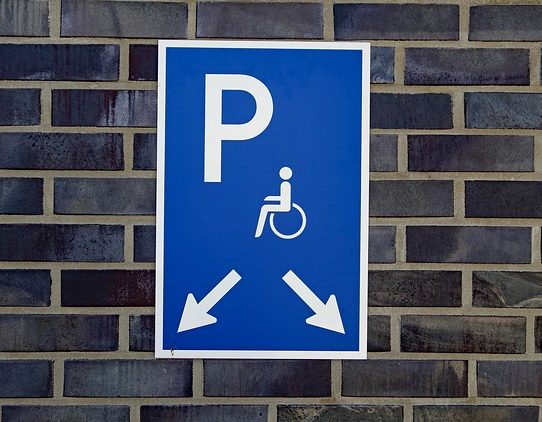
Helen Undy, Director, Money and Mental Health
Mental health, Blue Badges - and why we need a bigger cake
1 August 2018
This week the government announced plans to extend the Blue Badge scheme in England to people with ‘hidden disabilities’, such as mental health problems, autism or learning disabilities.
When Disability Living Allowance (DLA) moved over to Personal Independence Payment (PIP), the change in eligibility criteria meant that many people with mental health problems found it much harder to get a Blue Badge. Fixing this is a welcome move, but the backlash against it in some quarters highlights the fear and worry generated by rationing of services more broadly – and the need to improve supply when we’re increasing demand.
Accessibility is not just about physical health
For a long time discussions about accessibility have focused on adaptations for people with physical disabilities or sensory impairments – things like ramps, hearing loops or handrails. And while these are undoubtedly important, it’s time that we questioned what the equivalent adaptations might be for people with mental health problems.
At Money and Mental Health we’ve carried out extensive research on the accessibility of essential services, like gas, electricity and banking, for people with mental health problems. We found that four in ten people with mental health problems experience severe anxiety dealing with essential service providers, and three quarters have serious difficulties engaging with at least one communication channel – like the phone or post. This often leaves people unable to access basic services at all, and in need of an adapted service or additional support to be able to do so. While our research has focused on these essential (and often online) services, other work points to difficulties getting to the shops or using services like public transport.
Aids and adaptations
Sometimes the adjustments needed will mean thinking about accessibility in a very different way – changing the language we use, the communication channels we offer, or the amount of information we give to people. Sometimes it’s just about extending the availability of adjustments that already exist – for example offering Blue Badges to people with mental health problems and other hidden conditions. Transport for London have led the charge on some of these issues, producing a London Underground map for people with anxiety or claustrophobia and ‘please offer me a seat’ badges for those with other hidden disabilities that leave them less able to stand.
What has this got to do with parking?
For many people with mental health problems transport can be an issue. Anxiety, paranoia or delusions can make public transport hard to use. Knowing that you’ll be able to get a parking space can make the difference between feeling confident to drive to the shops and staying at home. The Blue Badge also brings an exemption from the congestion charge in London and some other tolls nationally – reducing the financial burden experienced by people whose health forces them into more expensive forms of transport.
In a survey of over 5,000 people with mental health problems, 93% said they spend more when they’re unwell – and part of this is additional costs. Access to a Blue Badge not only makes it easier to get around, but it makes life more affordable for those with disabilities and health conditions that can make life very expensive.
Fighting for a bigger cake
On the whole, the reception to the government’s announcement has been positive. But there has been some push back from people and groups who are, understandably, concerned about widening eligibility for a resource that is already in high demand: disabled parking spaces. If you’ve struggled for years to reliably get access to a parking bay, unloading wheelchairs on the pavement or struggling across a busy car park, it’s understandable that there might be concern. But that doesn’t negate the experiences of those who are struggling in other ways, but whose struggle is less visible, or less well understood.
When a resource is limited, we are faced with two options: do we fight between ourselves for our slice of the cake, or do we join together to fight for a bigger cake. I know where I’d put my energies every time – and that means more blue badges and, crucially, more disabled parking bays.
